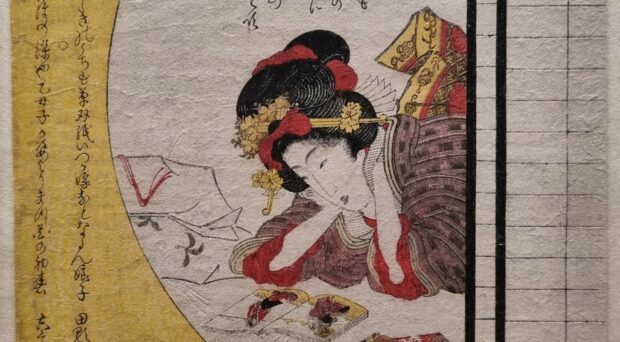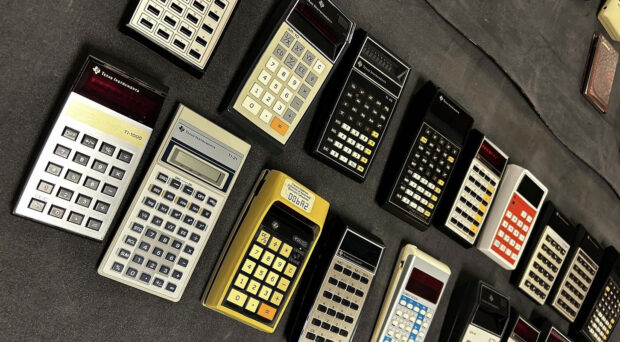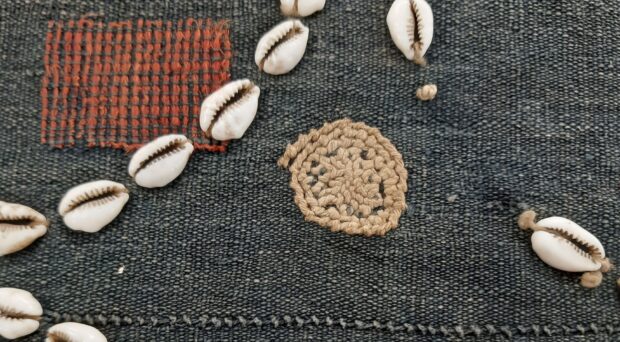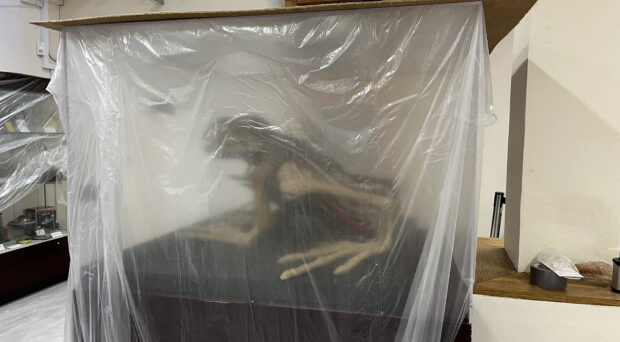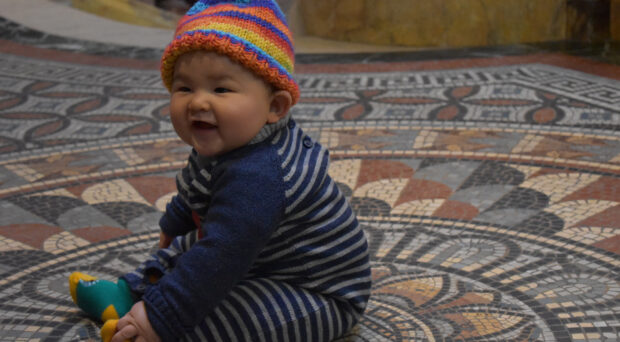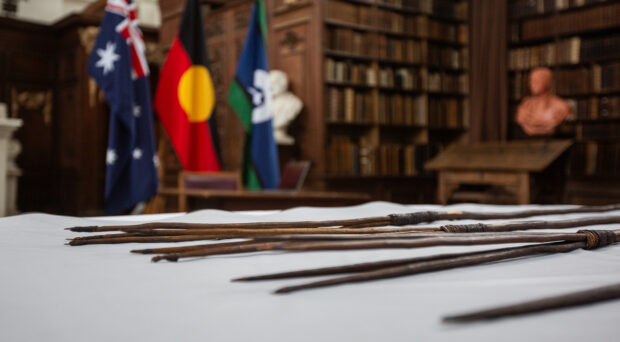What do a Polar map, a Egyptian coffin, the earliest animal fossils and an exhibition on the Pacific have in common? They were all winners in this year’s University of Cambridge Vice-Chancellor’s Research and Impact Engagement Awards, in which four projects at the University of Cambridge Museums scooped prizes.
The prizes recognise the important role our museums play in sharing the University of Cambridge’s research with as wide an audience as possible.
The earliest animal life
This award to Emily Mitchell of the Department of Earth Sciences recognised her collaboration with the Sedgwick Museum of Earth Sciences on a temporary display and public programme, allowing public audiences to engage with research on the earliest fossils of animal life.
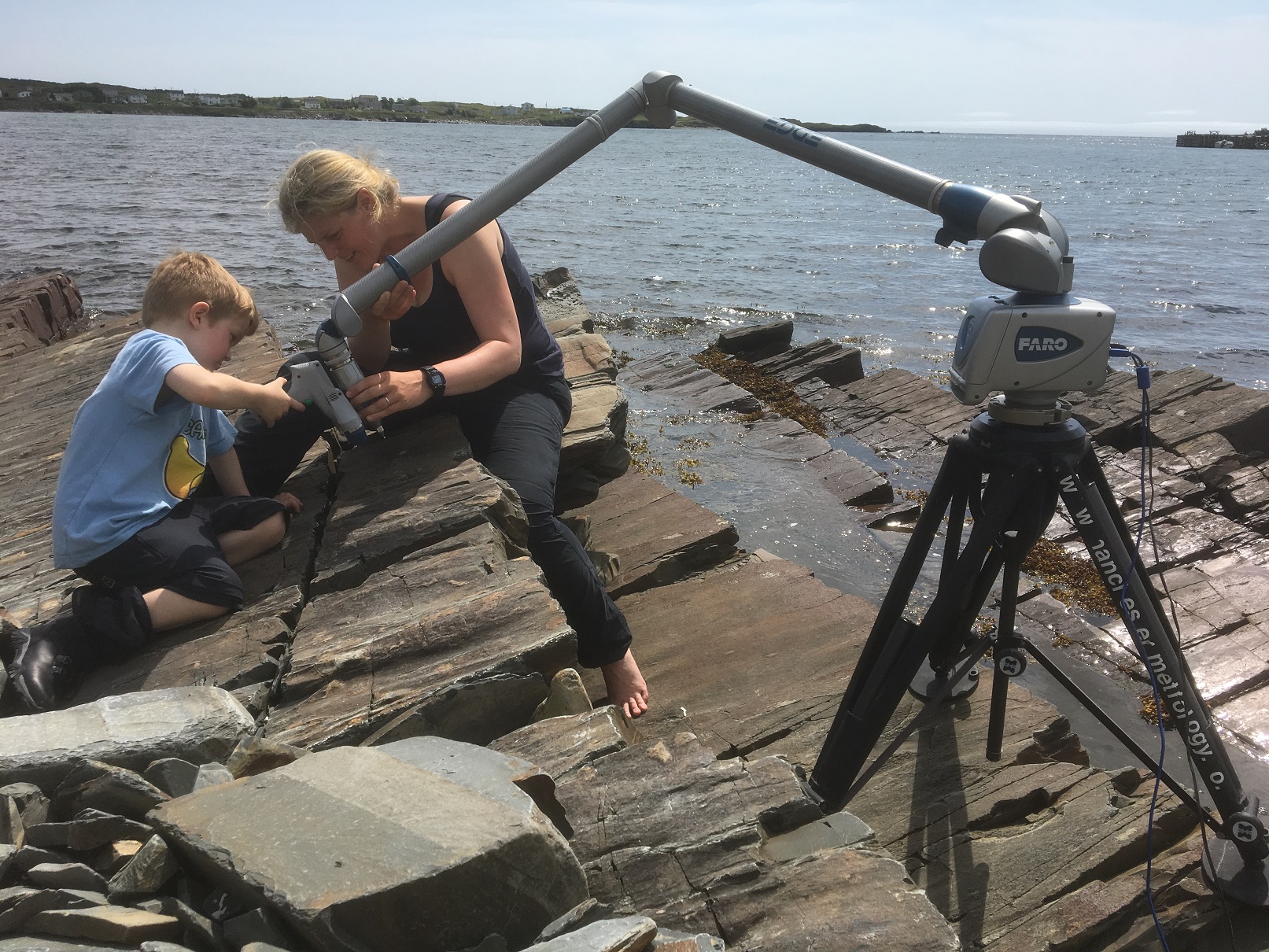
The fossils in question are found in rocks that are 580 million years old, on the remote part of the coast of Newfoundland in Canada. As part of her research, Emily scanned the fossils using a handheld laser scanner and reconstructed them digitally back in Cambridge. The display, developed in collaboration with the Sedgwick Museum’s Exhibitions Coordinator Rob Theodore, included 3D prints of the scans as well as casts made from rubber moulds taken in the field.
Find out more about the project
A landmark exhibition on the Pacific
Nicholas Thomas, Director of the Museum of Archaeology and Anthropology (MAA), was awarded an Established Researcher Award for his work on the landmark Royal Academy exhibition Oceania. The show was the first exhibition in any UK art institution to represent the arts and histories of the region and the first major show dedicated to the Pacific in any northern hemisphere museum since 1979.
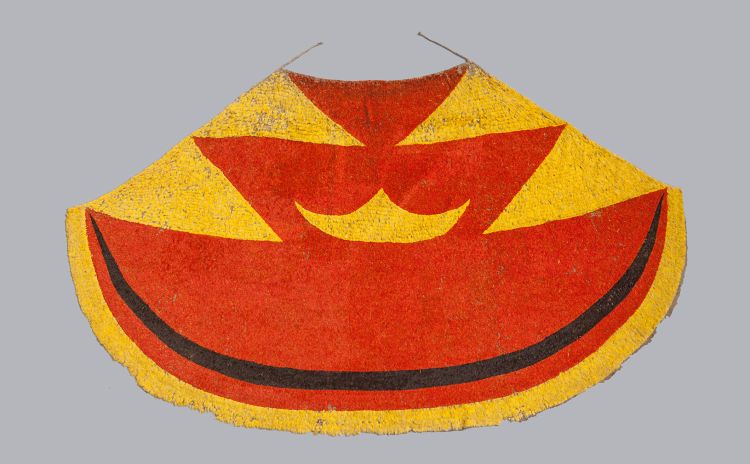
Oceania was based in collaborative research from Cambridge and MAA was the largest lender to the exhibition, which brought together objects from over 30 museum collections. Based in close collaboration with experts, artists and community members from across the Pacific, many of whom joined the research group for study visits to museums in Germany, the Netherlands, France, Italy, Spain, Estonia, Ireland and elsewhere, the project explored Indigenous art traditions, the histories of collections, and the values artefacts hold for Islanders in the present.
Marvellous maps
Naomi Chapman of the Polar Museum received a Professional Services Award for the development of innovative sensory maps of the Arctic and Antarctic. Naomi worked with artist Jenny Langley to replicate the North and South Poles in tactile fabrics and textiles. Thanks to the maps, hundreds of children, young people, and Blind and partially-sighted visitors have explored the Polar regions through touch.
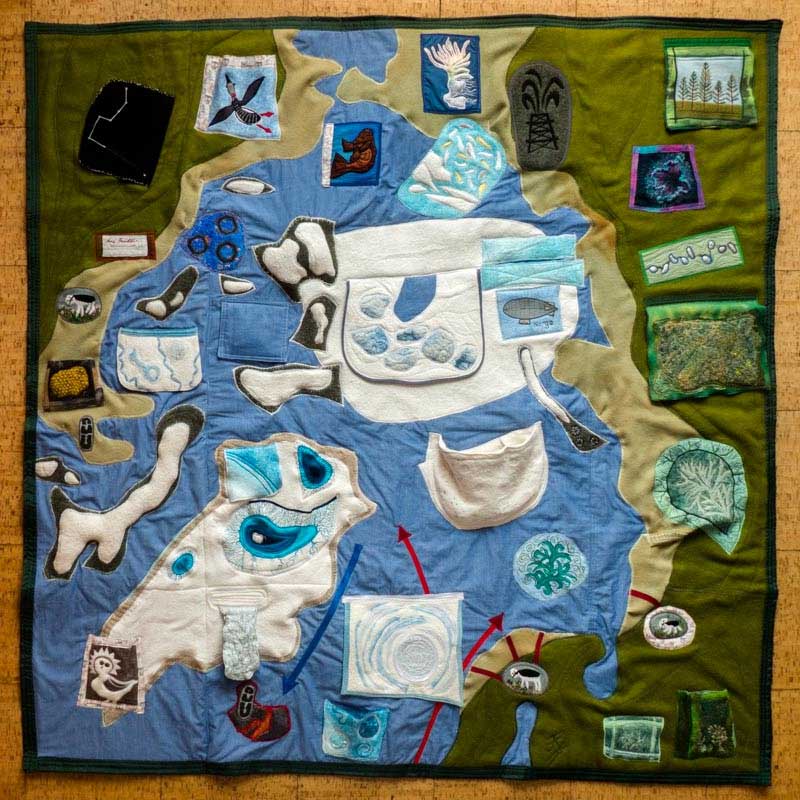
Death on the Nile
The Fitzwilliam Museum’s Helen Strudwick received a Collaboration Award for the Egyptian Coffins Project. The project engages audiences with the Museum’s pioneering research on ancient Egyptian coffin construction and decoration. So far, the Project has included a major exhibition, Death on the Nile, a pop-up museum and digital resources.
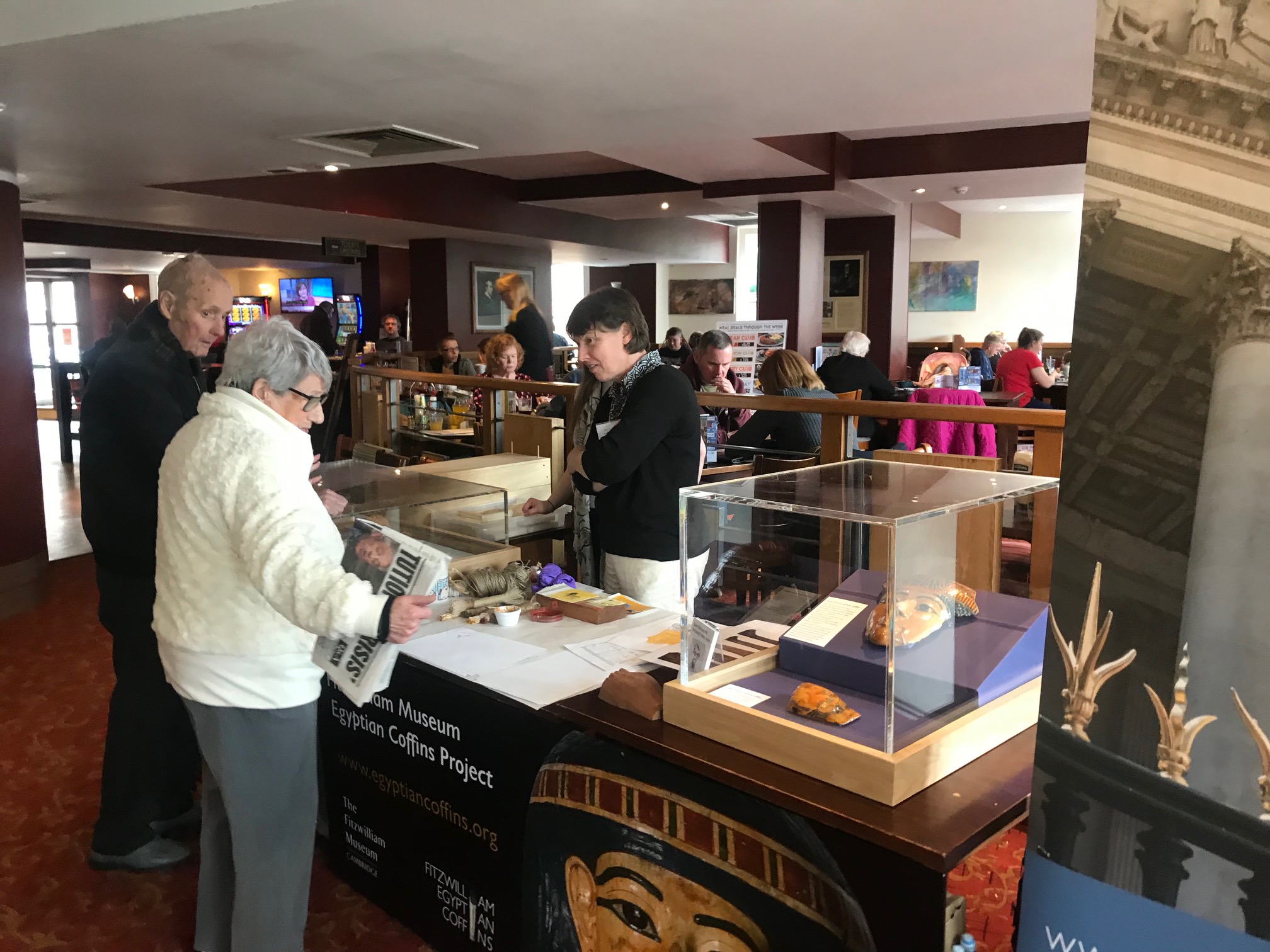
In Helen’s own words, “The Egyptian Coffins project is about real people rather than weird gods that sometimes appear on ancient Egyptian coffins. We’re looking at the people who made the coffins, the construction of them and what we’ve found out about the people for whom they were made. We’re offering a whole new perspective on Egyptology.” The pop-up museum has made surprise appearances in Cambridge and Wisbech – including the Wheatsheaf Inn, Wisbech’s local Wetherspoons.
Find out more about the Egyptian Coffins Project
You can find out more about the Vice-Chancellor’s Research and Impact Engagement Awards on the University website.


